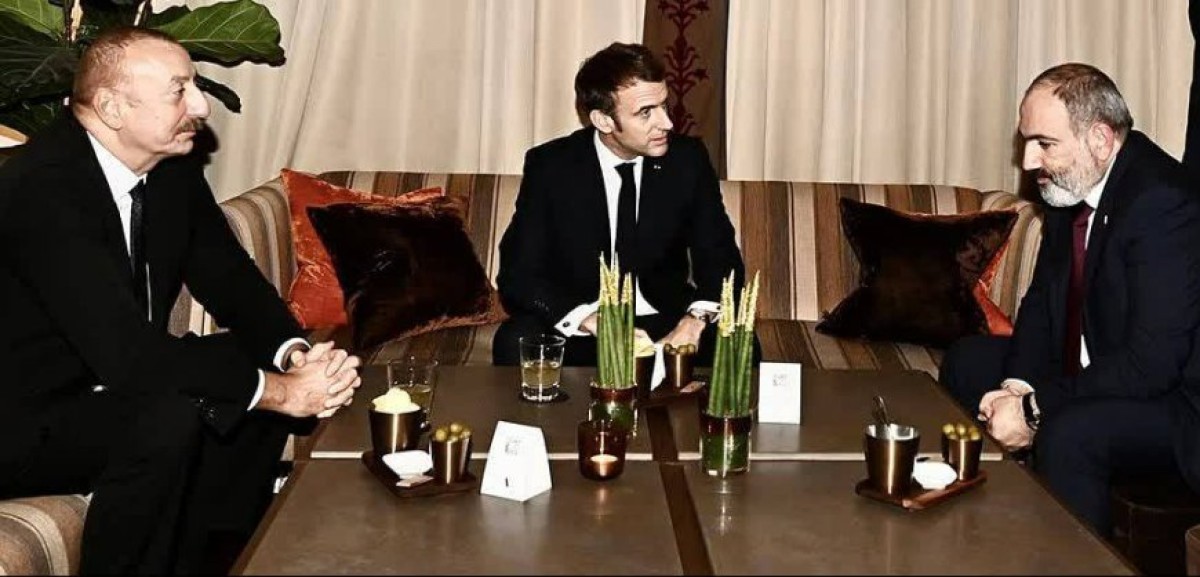 469
469
France's Quest for Influence in the South Caucasus: Filling the Void?
France's Quest for Influence in the South Caucasus: Filling the Void?
France, which has recently grappled with geopolitical setbacks, seeks to reclaim its standing as a crucial player in the international arena. Having suffered a loss of influence in Africa, Paris now sets its sights on the South Caucasus as a potential region of interest. In particular, the disputed Nagorno-Karabakh region presents a theater where France endeavors to assume a pivotal role. The historical roots of France's relationship with Azerbaijan trace back to the latter's declaration of independence in 1992.
By: A. Mahdavi
These bilateral relations, multifaceted and spanning various domains such as culture, energy, and space, flourished and deepened until the eruption of the second Nagorno-Karabakh war.
In fact, France's protective stance towards Armenia during the hostilities precipitated a decline in the level of interaction between Paris and Baku. This downward trajectory persists to this very day, with the Azerbaijani government expelling two members of the French embassy as Persona non grata, prompting the reciprocal expulsion of two Azeri diplomats by the French government.
The mounting tension between Azerbaijan and France finds its roots in Baku’s accusation that France is impeding the formation of a peace agreement with Yerevan, alongside claims that France is using its influence over Armenia to sabotage a peace deal. The Azeri government even perceives France as a potential catalyst for the resurfacing of conflict in the Nagorno-Karabakh region.
While France vehemently denies these allegations, asserting itself as a proponent of peace and emphasizing the necessity of diplomacy to achieve lasting peace in the region, the souring relations between Baku and Paris engender an escalation of tensions in Nagorno-Karabakh as the future prospects of their relationship remain uncertain.
In its quest for an influential role in the South Caucasus, the Élysée has sought to bolster its position by supporting Armenia. France perceives its presence in the region as an opportune means to exert pressure on Russia and remedy its international image following its geopolitical setbacks in Africa and the defeat in the conflict against the Kremlin in Ukraine.
Observers believe that the relationship between France and Armenia operates on a mutually beneficial framework, with France serving as an invaluable ally to Armenia.
Firstly, France's status as a permanent member of the Security Council ensures Armenia's reliance on French diplomatic support. Secondly, France can serve as a gateway for Armenia's integration into the European Union, and lastly, France's position as cutting-edge weapon manufacturer proves of paramount importance to Armenia.
By aligning itself with France, Armenia can secure maximum benefits, mitigate its military vulnerability, and wield greater leverage in negotiations with Azerbaijan. Nevertheless, Armenia remains cognizant of the fact that it is not solely relying on France, given Paris’ history of participating in geopolitical games to secure its own interests.
This bitter reality holds true for the Nagorno-Karabakh crisis, where France endeavors to fill the void left by Russia's diminished presence, enabling it to possess essential bargaining tools for future negotiations in other parts of the world.
Moreover, France's presence in the Caucasus offers considerable economic benefits and the potential for expanded cooperation with Russia, in addition to acting as a counterbalance to Turkey's sinister encroachments.
While France's emerging presence in the South Caucasus may be perceived as a positive development for Armenia, it is crucial to recognize that this does not guarantee an outright victory in the complex geopolitical game of the region. France is likely to employ Armenia as a mere pawn in its future geopolitical endeavors. The unfolding developments will shed further light on this matter.
In summary, France's bid of reclaiming its standing as a crucial player in the international arena leads it to focus on the South Caucasus, particularly the disputed Nagorno-Karabakh region. The historical roots of France's relationship with Azerbaijan, although once flourishing, have been strained due to France's protective stance towards Armenia during the second Nagorno-Karabakh war. This tension has escalated with accusations from Baku that France is impeding peace agreements and potentially instigating conflict in the region. France, aiming to exert pressure on Russia and enhance its international image, supports Armenia in this geopolitical game. However, Armenia must remain cautious, as France's past behavior indicates it may use Armenia as a pawn in its future endeavors. The unfolding developments will reveal the true nature of France's presence in the South Caucasus and its implications for the region.
 469
469
Comment
Post a comment for this article